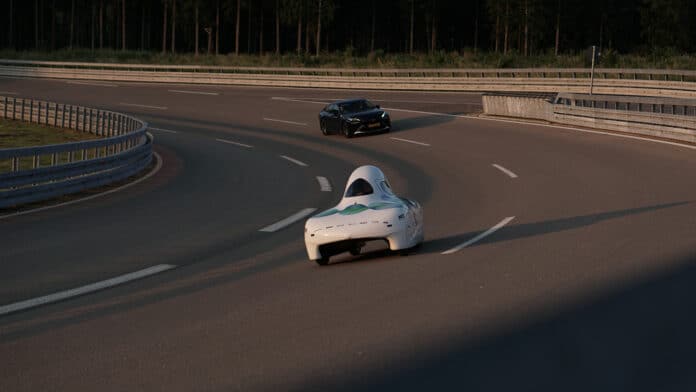A team of students from the Delft University of Technology in the Netherlands has set a new Guinness world record for driving the longest distance ever covered by a hydrogen-powered vehicle without refueling.
The Eco-Runner Team Delft, composed of 24 students, develops its mini hydrogen-powered city car every year, tweaking the design and aerodynamics of the vehicle to make the most recent model surpass previous records. It all began in 2005 with the three-wheeled Eco 1, which participated in the Shell Eco-marathon, a worldwide energy efficiency competition. The car then achieved an efficiency of 557 km/liter of petrol in the top-5 entries.
The next version switched to hydrogen as a fuel source. Later designs continued for several years until the first city-level concept car appeared in 2020; the design included three wheels like the previous version but a significantly reduced vehicle length.
The next iteration added a fourth wheel and managed to travel non-stop for 36 hours, covering a distance of 1196 km. Last year’s design team took first place during the Hydrogen Efficiency Challenge with an efficiency of 5,407 km per kilogram of hydrogen.
In May 2023, the team presented the latest iteration for this year, Eco-Runner XIII, with a redesign focused on securing a new distance record. The team dedicated an entire year to designing, constructing, testing, and racing what they hoped would be the world’s fastest and most efficient hydrogen-powered vehicle. The vehicle converts hydrogen into electric energy, producing only water vapor and heat instead of harmful gases.
The Eco-Runner XIII stands for the transition all cars need to make – cars need to become more efficient, whether driving on fossil fuels or not. The Eco XIII pushes the technical boundaries of this efficiency by making the car smaller, lighter, and more aerodynamic. The car’s shape is optimized to decrease the aerodynamic drag, and a load-carrying structure is made as lightweight as possible without breaking.
The team then headed to the Immendingen track in Germany for the World Record Attempt, where the hydrogen car covered an impressive 2,488.5 km without refueling, surpassing the previous record of 2,055.7 km. To achieve this, 11 drivers took turns navigating the same 5 km lap in two-hour shifts, totaling 71.5 hours of day and night driving. The 950 grams of hydrogen was used to set the new Guinness World Record.
